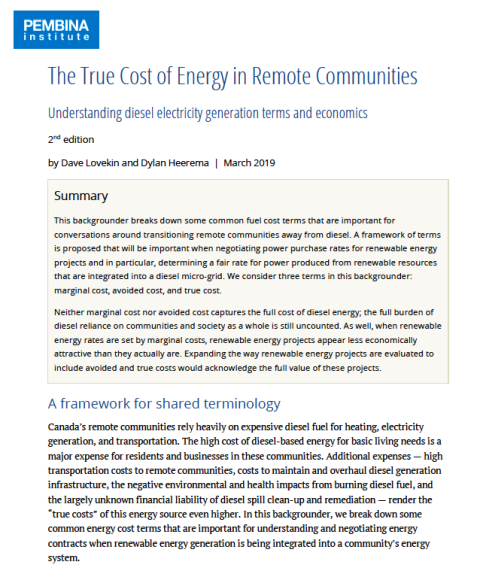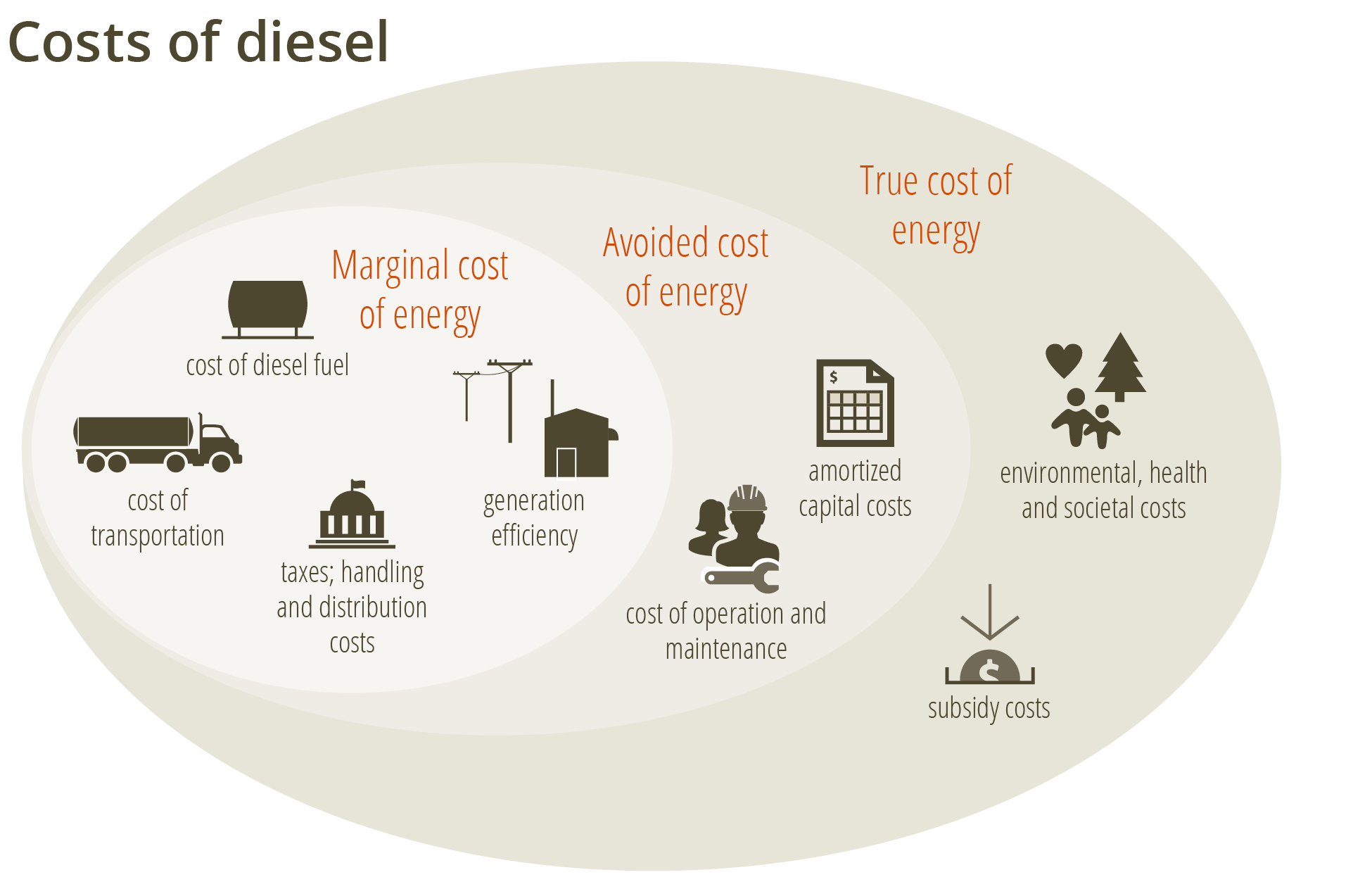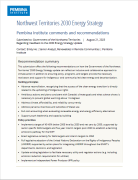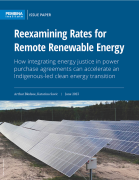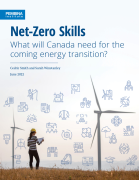Canada’s 292 remote communities rely heavily on diesel fuel for heating, electricity generation, and transportation. The high cost of diesel energy is a major expense for these communities, and the “true cost” can be even higher. This backgrounder breaks down some common fuel and energy cost terms that provide an important framework for conversations on diesel energy in remote communities.
The proposed terms and framework are intended to ground conversations about transitioning remote communities away from diesel. These terms are key to negotiations on power purchase rates for renewable energy projects and, in particular, determining a fair rate for power produced from renewable resources that are intregrated into a microgrid. We consider three terms in this backgrounder — marginal cost, avoided cost, and true cost — and how they relate to renewable energy projects integrated into microgrids.
This is the second publication in Remote Communities Energy in Transition, a series about challenges, opportunities, and solutions in integrating renewable energy into remote communities’ microgrids. These publications cover the advancements in technical, financial, and human capacity, energy policy, and regulations needed to transition remote communities to clean energy. For more publications, visit our Renewables in Remote Communities website.
Remote Communities Energy in Transition
Publications in this series:
- Diesel, renewables, and the future of Canada’s remote communities
- The True Cost of Energy in Remote Communities
- Remote communities meet renewable energy solutions
- The future of the electric utility in Canada’s remote communities
- Rebuilding Canada’s economy includes energy resiliency in remote communities
- How B.C. can be a leader in economic reconciliation
- Tracking diesel reduction progress in remote communities

